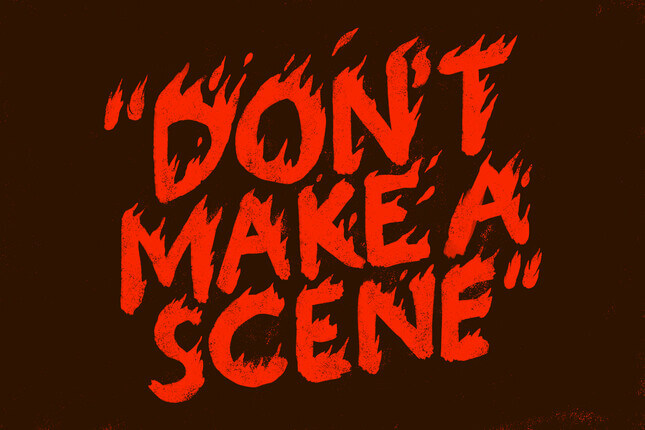Don't Make a Scene
Latest

“Don’t embarrass me in the hotel,” Harvey Weinstein commanded model Ambra Battilana Gutierrez in a recording published on Tuesday by the New Yorker. Released with a story detailing part of a long history of rape and sexual assault allegations leveled against the producer, the recording was initially part of a New York City Police Department sting engineered days after Weinstein allegedly sexually assaulted Gutierrez. The police fitted Gutierrez with a wire which she wore to meet Weinstein at his hotel. The resulting conversation is a disturbingly familiar exchange; Weinstein attempts to verbally coerce Gutierrez out of a more public space and into the privacy of his hotel room.
“If you embarrass me in this hotel where I’m staying at…,” Weinstein threatens, “I’m not embarrassing you. It’s just that… I don’t feel comfortable,” Gutierrez replies in a pleading tone. Weinstein continues to threaten and cajole, “Don’t ruin your friendship with me for five minutes,” he tells her. Throughout the back and forth, he admits to assaulting her and admits that he does such things with regularity. And yet, throughout the course of the recording, Weinstein characterizes Gutierrez as irrational and unstable; it is her refusal to submit that is embarrassing, her behavior that is judged inappropriate for the public spaces at the Grand Tribeca Hotel. “Please, you’re making a big scene,” Weinstein finally says to her.
-

-

-

-

-

-

-

-

-

-

-

-

-

-

-

-

-

-

-

-

-

-

-

-

-

-

-

-

-

-

-

-

-

-

-

-

-

-

-

-








































